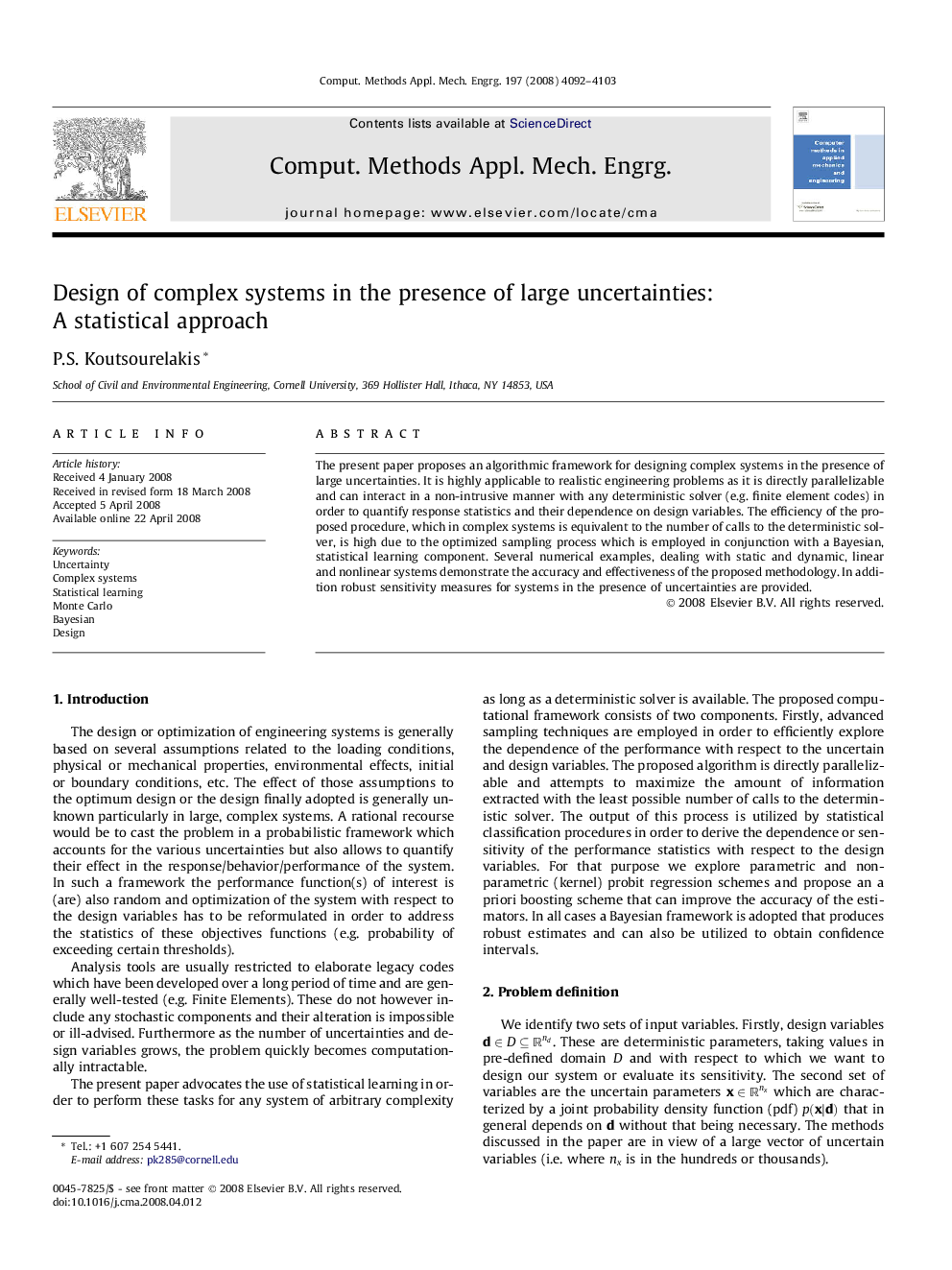| Article ID | Journal | Published Year | Pages | File Type |
|---|---|---|---|---|
| 499618 | Computer Methods in Applied Mechanics and Engineering | 2008 | 12 Pages |
The present paper proposes an algorithmic framework for designing complex systems in the presence of large uncertainties. It is highly applicable to realistic engineering problems as it is directly parallelizable and can interact in a non-intrusive manner with any deterministic solver (e.g. finite element codes) in order to quantify response statistics and their dependence on design variables. The efficiency of the proposed procedure, which in complex systems is equivalent to the number of calls to the deterministic solver, is high due to the optimized sampling process which is employed in conjunction with a Bayesian, statistical learning component. Several numerical examples, dealing with static and dynamic, linear and nonlinear systems demonstrate the accuracy and effectiveness of the proposed methodology. In addition robust sensitivity measures for systems in the presence of uncertainties are provided.
